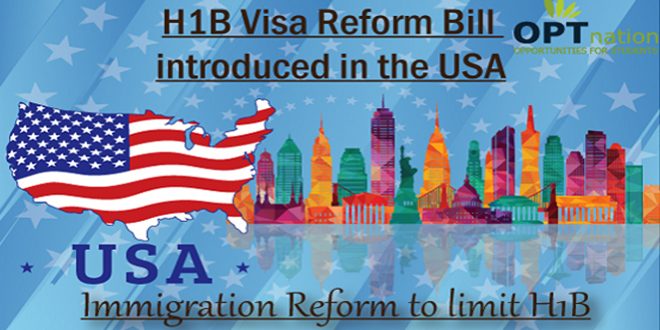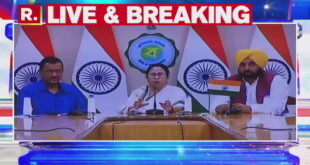Washington: Two Republican Senators today introduced legislation in the Senate that seeks to increase the annual H-1B visa limit with an aim to bring in the world’s “best and brightest” to the US. Introduced by Senators Orrin Hatch and Jeff Flake, the Immigration Innovation (I-Squared) Act of 2018 provides work authorisation for spouses and dependent children of H1B visa holders and establishes a grace period during which H1B visa holders can change jobs without losing legal status. It also exempts spouses and children of employment-based green card holders from the cap.
The senator, who has announcement his retirement from the Senate, said the bill focuses on four areas that are “vital to maintaining the US “competitiveness in the global economy.” They are: making available H-1B visas for business that face shortage of American labor; “reforms to the H-1B program to reduce fraud and help protect workers”; “increased access to green cards for high-skilled workers;” and “directing fees collected for H-1B visas and green cards to promoting STEM worker training and education.”Similar the bill were introduced in the last two Congresses. The bill also proposes the per country quota for green cards, which will benefit Indian and Chinese nationals. It also wants to remove the current 20,000 visa limit for US master’s degree holders if their employers are willing to sponsor their green cards. Hatch said that, “Now more than ever, we need highly qualified workers with the skills employers need to succeed in the information economy.” The bill proposes close to $1 billion “in new funding for STEM education and worker training programs through increases in visa fees,” Hatch said.Flake, Arizona’s junior senator and a frequent critic of President Trump who decided not to seek re-election this November, said the bill proposes critical fixes to “a broken U.S. immigration system that has been unable to keep up with the needs of American employers” said in the American news media.
Here are some of the measures proposed by the Immigration Innovation (“I-Squared”) Act of 2017, according to Hatch’s website:
H-1B Visas
- S. advanced degrees: Uncaps the existing exemption (currently 20,000) for holders of U.S. master’s degrees or higher from the annual numerical limitation on H–1B visas for individuals who are being sponsored for or who will be sponsored for a green card. ?
- Statutory cap: Increases the annual base allocation of H–1B visas from 65,000 to 85,000. ?
- Market escalator: Creates a market-based escalator to allow the supply of H–1B visas to meet demand. Under the escalator, up to 110,000 additional H–1B visas (for a total of 195,000) may be granted in a fiscal year if certain demand requirements are met. ?
- Lottery prioritization: Prioritizes adjudication of cap-subject H–1B visa petitions for holders of U.S. master’s degrees or higher, holders of foreign Ph.D.’s, and holders of U.S. STEM bachelor degrees. ?
- Hoarding penalties: Subjects employers who fail to employ an H–1B worker for more than 3 months during the individual’s first year of work authorization to a penalty. ?
- Prohibitions on replacement: Prohibits employers from hiring an H–1B visa holder with the purpose and intent to replace a U.S. worker. ?
- Work authorization for H–1B spouses and children: Provides work authorization for spouses and dependent children of H–1B visa holders. ?
- Worker mobility: Increases H–1B worker mobility by establishing a grace period during which H–1B visa holders can change jobs without losing legal status. ?
- Dependent employers: Updates 1998 law exempting H–1B dependent employers from certain recruitment and nondisplacement requirements. Raises from $60,000 to $100,000 the H–1B salary level at which the salary-based exemption takes effect. Narrows education-based exemption to H–1B hires with a U.S. Ph.D. Eliminates exemptions for “super-dependent” employers altogether.
Green Cards
- Per-country numerical limits: Eliminates annual per-country limit for employment-based green cards and adjusts per-country caps for family-based green cards.
- Green card recapture: Enables the recapture of green card numbers that were approved by Congress in previous years but not used. ?
- Exemptions from green card cap: Exempts spouses and children of employment-based green card holders, holders of U.S. STEM master’s degrees or higher, and certain individuals with extraordinary ability in the arts and sciences from worldwide numerical caps on employment-based green cards. ?
- Worker mobility: Increases worker mobility for individuals on the path to a green card by enabling such individuals to change jobs earlier in the process without losing their place in the green card line.
- Employment–based conditional green cards: Creates new conditional green card category to allow U.S. employers to sponsor university-educated foreign professionals through a separate path from H–1B.
Student Visas
- Dual intent: Enables F–1 student visa holders to seek permanent resident status while a student or during Optional Practical Training (OPT).
STEM Education and Worker Training
- Promoting American Ingenuity Account: Increases fees for H–1B visas and employment-based green cards and directs fees toward state-administered grants to promote STEM education and worker training.
________________________________________It increases fees for H1B visas and employment-based green cards and directs fees toward state-administered grants to promote STEM education and worker training.”The Senators’ proposed I-Squared Act is an important step in protecting US workers, investing in STEM education, and ensuring that we can recruit people to fill jobs here in the US,” said Brad Smith, president, Microsoft.Erin Egan, VP of US Public Policy, Facebook said the legislation will modernize the H1-B visa and green card programmes while also encouraging increased STEM education in the US to train the next generation of US workers in high- growth fields.
Neil Bradley, executive vice president and chief policy officer, US Chamber of Commerce said the bill would vastly improve high-skilled immigration to the US by establishing market-based H-1B quotas and instituting various reforms to employment-based immigrant visa system that would make nation’s immigration system more merit-based.
LynnShotwell, executive director, Council for Global Immigration said that the legislation would ensure that employers acting in good faith have access to the top global talent they need to compete, while providing additional investments to train and educate US workers in high-demand STEM fields, while also reforming the H-1B programme with enhanced protections for US workers.
“This bill will greatly enable continued US innovation, job creation, and economic expansion, while preventing abuses of the H-1B programme that could harm US workers,” said Mark MacCarthy, senior vice president for Public Policy of the Software & Information Industry Association as per PTI .
 India One News
India One News





